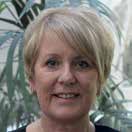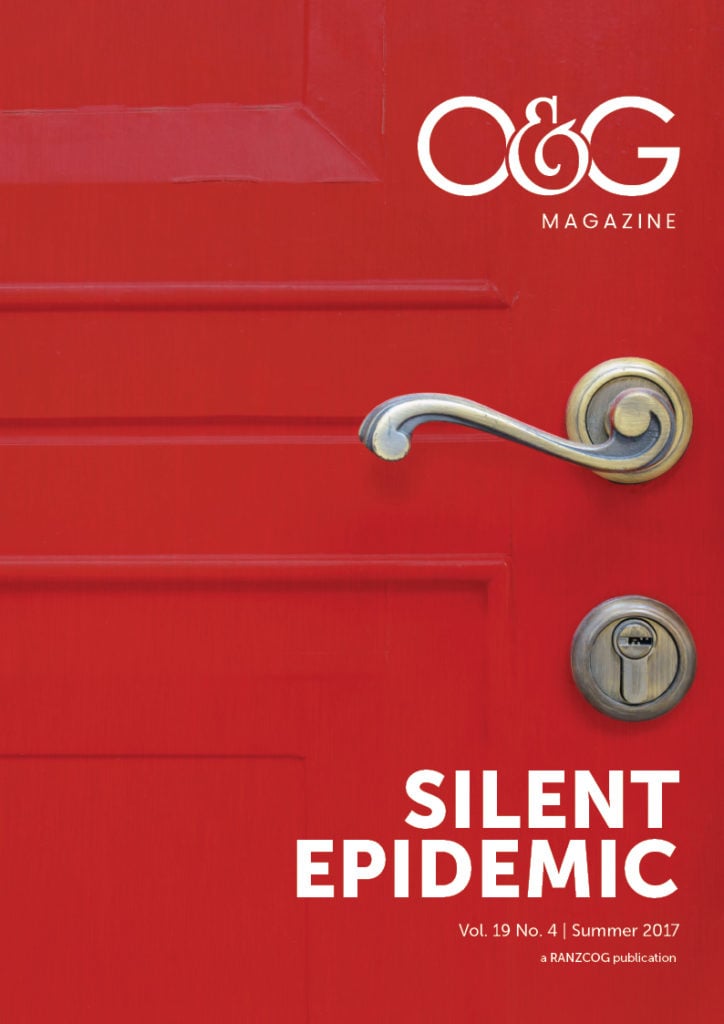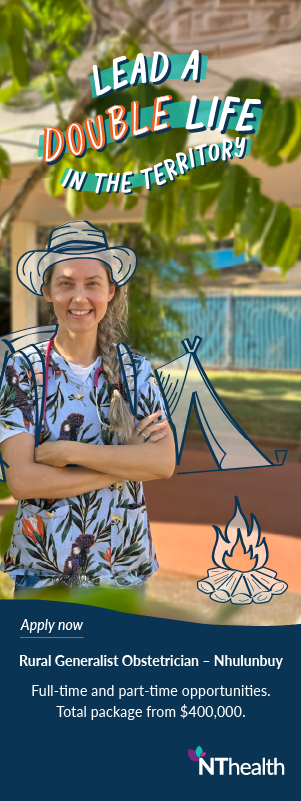Supporting Respectful Workplaces – Update
Reports of bullying, harassment and discrimination in medicine have been the subject of much discussion over the past few years; across the entire spectrum from medical student to consultant.1 2 3 4 5 6 7 8 9 10
While the problem is widely acknowledged, effective strategies to address the situation have been difficult to identify. Medicine is a complex domain that involves ‘a loose coalition of high-achieving, competitive individuals belonging to numerous workplaces and associations, each with its own internal hierarchies and cultures’.11 Within medicine, there exist multiple subcultures; each with its own set of values, beliefs and attitudes that influence the behaviours of its members. However, common themes have emerged from the research conducted over the past decade and these themes were reflected in RANZCOG’s own survey into bullying and harassment conducted in 2016.
The survey was sent to 2149 Fellows and 701 trainees; of this number, 659 Fellows (approximately 30 per cent) and 265 trainees (approximately 40 per cent) responded. Of the total responses received, 60 per cent (522) indicated that they had been bullied in the O&G workplace – most often when in the role of a trainee, but with 34 per cent indicating that they had experienced this behaviour while working as a consultant.
Consistent with findings from other surveys, the reasons given for not reporting or challenging the behaviour were related to a fear of compromising career prospects or fear of making the situation worse. In terms of what form the bullying and harassment took, the common themes were humiliating and belittling behaviour generally perpetrated in the presence of others, including patients. What was not investigated at that time was the incidence of sexual discrimination in the workplace nor the gender of those who had experienced bullying.
What is RANZCOG doing?
As a result of the survey and in acknowledgement of the growing need to provide greater support to our trainees (and supervisors), a new Training Support Unit has been established. This Unit was formally launched at the ASM in New Zealand and the Trainee Liaison Senior Coordinator has already commenced in her role and is quickly becoming familiar with the RANZCOG programs and processes. This role will be the primary point of contact for trainees (or supervisors) seeking support and assistance. The College will shortly finalise an agreement with Converge International who are experienced in the provision of expert advice and assistance. This organisation employs specialists in psychology, mental health and wellbeing and can provide confidential support over the phone or face-to-face to trainees in times of difficulty.
RANZCOG is also pleased to launch the Train-the-Trainer ‘Supporting Respectful Workplaces’ workshop, which is being run in a number of regions and will be progressively rolled out over the coming months. The workshop has been developed for trainees, SIMGs and Fellows involved in the FRANZCOG training program and aims to develop and consolidate the skills and knowledge essential for safe and respectful practice in O&G and to help ensure training environments are free from bullying, harassment and discrimination.
Mentoring
Medicine is a demanding profession, making the wellbeing and support of doctors, especially those in their first years of medicine, of significant importance. Trainees face a multitude of external pressures, including heavy workloads, shift work and long hours, as well as significant internal pressures, such as the ongoing drive to achieve career goals and finding work-life balance. SIMGs face even greater challenges as they attempt to balance not only career and training pressures, but also the challenges associated with navigating the Australian health workplace.
The 2013 beyondblue survey of medical students and doctors provided sobering insight into the health of the medical profession. Alarming findings included that 47.5 per cent of doctors aged 30 years and younger reported emotional exhaustion. These findings prompted the recommendation for increased support for younger doctors, including strengthened mentor and mentee relationships. To address this, the College has developed a mentoring workshop that will assist in developing supportive relationships and provide a formalised program for mentors to enhance and develop their skills. This mentoring program will also be open to trainees.
What can I do?
Advanced trainees and Fellows who would like to take the lead in delivering these workshops are encouraged to attend a T3 workshop. The workshops are free of charge and attract CPD points. The T3 workshops include didactic and small group teaching methods as well as roleplay and simulation. Those who are interested should contact [email protected].
References
- Askew D, et al. Bullying in the Australian medical workforce: crosssectional data from an Australian e-Cohort study. Australian Health Review. 2012;36(2):197-204.
- Cheema S, et al. Bullying of junior doctors prevails in Irish health system: a bitter reality. Irish Medical Journal. 2005;98:274-5.
- Paice E, et al. Bullying among doctors in training: cross sectional questionnaire survey. BMJ. 2004;329:658-9.
- RANZCOG. Bullying and Sexual Harassment Survey. 2016.
- Rutherford A, Rissel C. A survey of workplace bullying in a health sector organisation. Australian Health Review. 2004;28:65-72.
- Shabazz T, et al. Consultants as victims of bullying and undermining: a survey of Royal College of Obstetricians and Gynaecologists consultant experiences. BMJ Open. 2016;6(6).
- Timm A. ‘It would not be tolerated in any other profession except medicine’: survey reporting on undergraduates’ exposure to bullying and harassment in their first placement year. BMJ Open. 2014;4(7).
- Ivory KD. Listen, hear, act: challenging medicine’s culture of bad behaviour. MJA. 2015;202:563-4.
- RACS. Expert Advisory Group on Discrimination, Bullying and Sexual Harassment. 2015.
- Jamieson J, et al. Bullying and harassment of trainees: an unspoken emergency? Emergency Medicine Australasia. 2015;27(5):464-7.
- Ivory KD. Listen, hear, act: challenging medicine’s culture of bad behaviour. MJA. 2015;202:563-4.






Leave a Reply